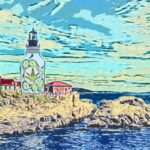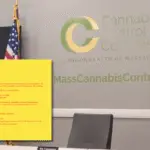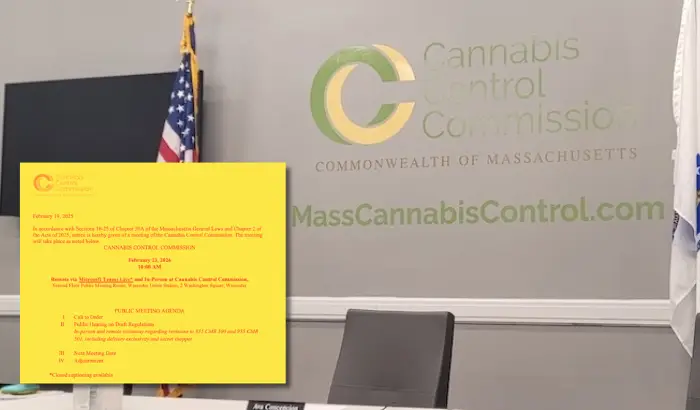Cannabis Control Commission wants to figure out how to allow for legal transport of weed across navigable waters as sole Vineyard producer faces imminent closure

“It’s really an all hands on deck situation.”
Acting Chair Ava Callender Concepcion brought up the topic during last week’s meeting of the Massachusetts Cannabis Control Commission. She continued: “We are aware that there is an issue happening right now, with the licensees and operators on the islands, in terms of transportation of product, because of a supply issue that is ongoing and could have really significant implications, particularly for medical consumers as we enter the summer months.”
Within the Massachusetts legal cannabis market, there are currently two areas that exist in a vacuum apart from the larger state market—Nantucket, and Martha’s Vineyard. Federal law technically prohibits the transport of cannabis across sea or ocean water—so all growing, processing, testing, and selling must take place on the island.
Cannabis operators are technically allowed to operate on the islands that are considered part of Massachusetts, but because crossing over to the mainland involves traveling on federal waters, cannabis and cannabis products can not be legally transported to or from the island. All products must be grown, processed, and sold on the island.
Over the last decade, the US government has taken a hands-off approach to state-legal cannabis businesses, but enforcement concerns from the US Coast Guard remain when it comes to crossing water.
“Our whole industry is in violation of federal law,” Commissioner Kimberly Roy said. “I just want to point out that irony.”
Aside from federal prohibitions, Jake Nielson, associate enforcement counsel for the CCC, explained that current state regulations would have to be changed to allow for transportation over waterways. Per the rules, vehicles must be in control of agents of the licensed establishment, which rules out the use of ferries. All transportation routes and times must also be randomized, which is much more difficult with boats and a limited number of commercial ports.
Nantucket has two vertically-integrated companies that serve both adult-use and medical cannabis—The Green Lady, and ACK Natural, both of which have been in operation for years.
On Martha’s Vineyard, Fine Fettle, a Connecticut-based company, currently owns and operates the sole cultivation and processing site, as well as one of the two adult-use dispensaries. But Fine Fettle recently announced that it is winding down its island operations; the company reported that it still has enough supply for the summer rush, but it anticipates shuttering by the end of fall.
“There are a lot of people that depend on the dispensaries on the island,” Concepcion said. “The supply is diminishing as we speak.”
The closure also puts the island’s other dispensary, Island Time, into jeopardy because it leaves the dispensary without a single wholesale source.
“I’m hopeful that the commission will figure out a way, in a timely fashion, to figure out transportation from the mainland,” said Jess Rose, owner of Island Time.
California regulations allow cannabis transportation to Santa Catalina Island, which is off the coast of Los Angeles, while New York allows transportation using ferries. Maine and Hawaii regulations also allow transport to or between islands. In contrast, a pilot in Alaska failed to overturn his license revocation in a federal court of appeals for transporting weed between dispensaries within that state via plane.
Roy suggested that the commission reach out to those states to see how they regulate transportation. “Other jurisdictions have done it,” the commissioner said. “We’re not inventing the wheel.”
The commission voted to hold a public hearing in Dukes County, which consists of 11 islands including Martha’s Vineyard, some time in the next month to discuss the impact of Fine Fettle’s closure and cannabis transportation across navigable waters.
“If we do nothing,” Roy said, “we’ll have 234 medical patients with no access to medical cannabis on the island.”























